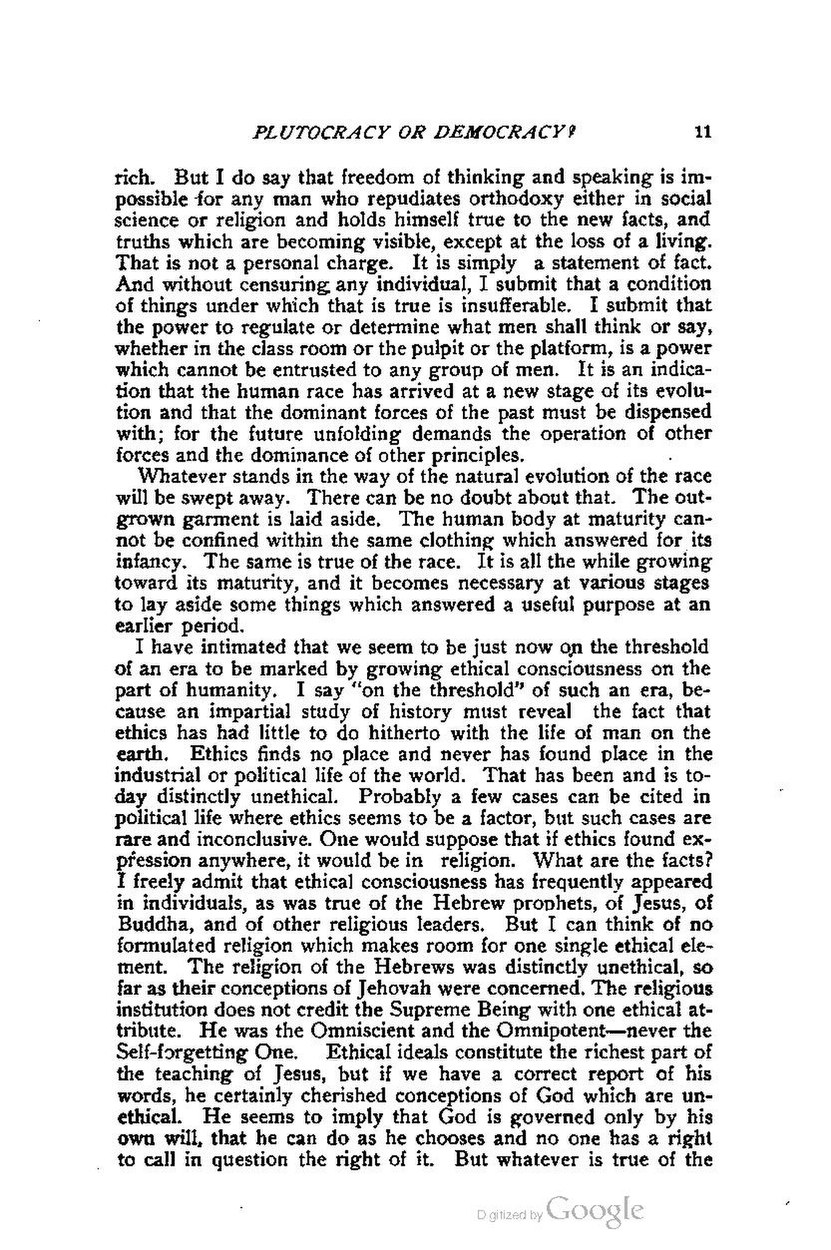rich. But I do say that freedom of thinking and speaking is impossible for any many who repudiates orthodoxy either in social science or religion and holds himself true to the new facts, and truths which are becoming visible, except at the loss of a living. That is not a personal charge. It is simply a statement of fact. And without censuring any individual, I submit that a condition of things under which that is true is insufferable. I submit that the power to regulate or determine what men shall think or say, whether in the class room or the pulpit or the platform, is a power which cannot be entrusted to any group of men. It is an indication that the human race arrived at a new stage of its evolution and that the dominant forces of the past must be dispensed with; for the future unfolding demands the operation of other forces and the dominance of other principles.
Whatever stands in the way of the natural evolution of the race will be swept away. There can be no doubt about that. The outgrown garment is laid aside. The human body at maturity cannot be confined within the same clothing which answered for its infancy. The same is true of the race. It is all the while growing toward its maturity, and it becomes necessary at various stages to lay aside some things which answered a useful purpose at an earlier period.
I have intimated that we seem to be just now on the threshold of an era to be marked by growing ethical consciousness on the part of humanity. I say "on the threshold" of such an era, because an impartial study of history must reveal the fact that ethics has had little to do hitherto with the life of man on the earth. Ethics finds no place and never has found place on the industrial or political life of the world. That has been and is today distinctly unethical. Probably a few cases can be cited in political life where ethics seems to be a factor, but such cases are rare and inconclusive. One would suppose that if ethics found expression anywhere, it would be in religion. What are the facts? I freely admit that ethical consciousness has frequently appeared in individuals, as was true of the Hebrew prophets, of Jesus, of Buddha, and of other religious leaders. But I can think of no formulated religion which makes room for one single ethical element. The religion of the Hebrews was distinctly unethical, so far as their conceptions of Jehovah were concerned. The religious instutition does not credit the Supreme Being with one ethical attibrute. He was the Omniscient and the Omnipotent—never the Self-forgetting One. Ethical ideals constitute the richest part of the teaching of Jesus, but if we have a correct report of his words, he certainly cherished conceptions of God which are unethical. He seems to imply that God is governed only by his own will, that he can do as he chooses and no one has a right to call in question the right of it. But whatever is true of the
